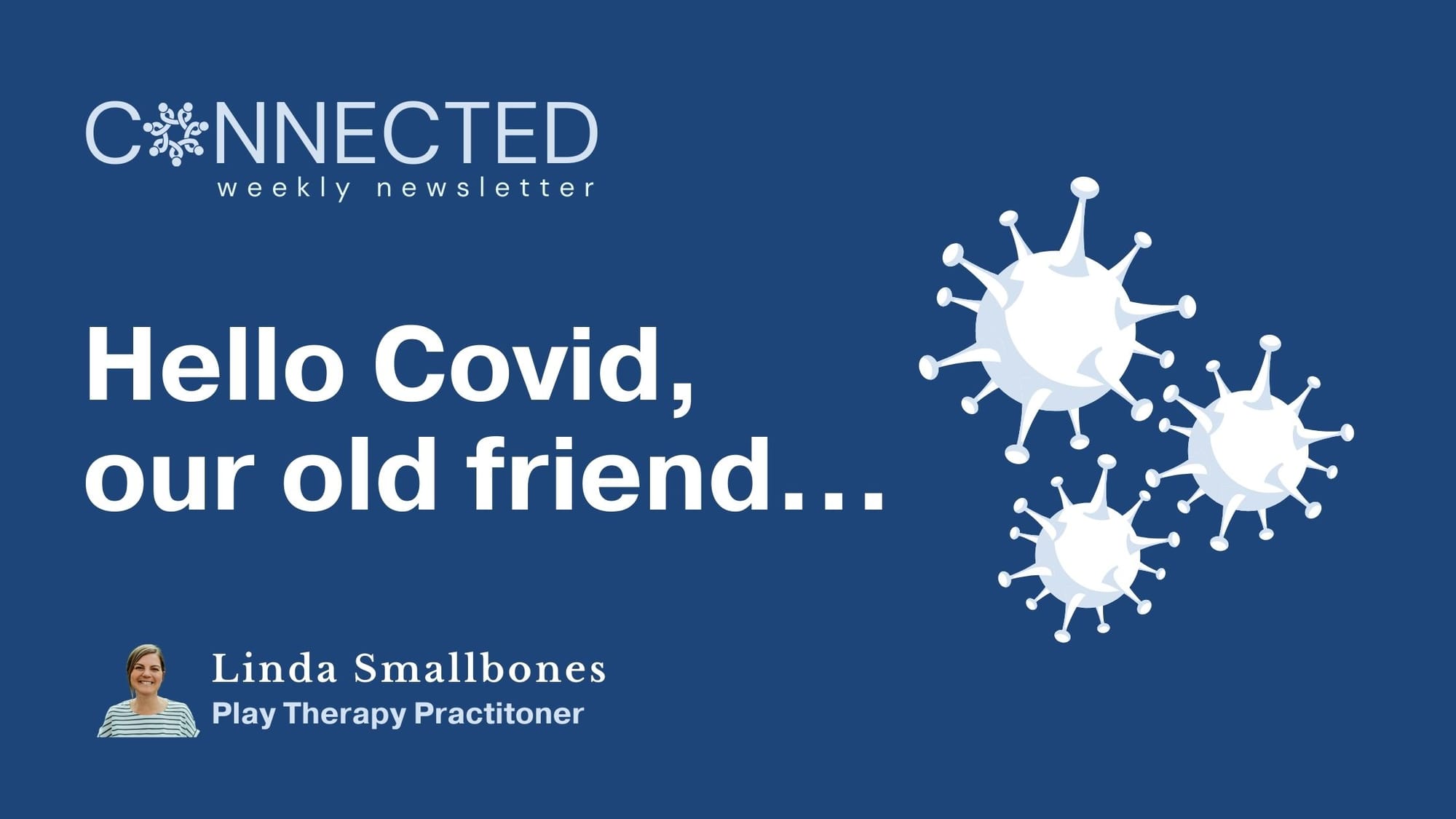Hello Covid, our old friend...
Covid’s impact lingers physically and mentally. Learn how to navigate post-Covid recovery, nurture mental health, and build resilience for the future.

I’m pretty convinced I had Covid recently. And the more I’ve spoken to people, the more I realise it’s been doing the rounds again. It looks different and it doesn’t carry the same panic factor as it did, even a year ago. It is no longer deadly dangerous (to most people), but it certainly still carries an impact.
For me, one of the impacts was muscle pain that I had never experienced before. When I spoke to a chiropractor, she said this has been a common symptom in flu (Covid) recently. That was really unexpected for me, and I didn’t realise that that level of muscle pain and Covid went together!
The other thing that happened was that it took a long while to regain energy and strength. This is not an unexpected side effect, but it can feel debilitating. And I certainly felt that energy depletion in my mood and daily functioning. It’s a real downer.
[Image Placeholder: Hello-Covid-2.jpg]
Here are some things I have learned about having the virus and its long-term mental health effects on society.
- It takes a long while, longer than we think, for the effects of a virus to work through our body. Rest, hydration, and multi-vitamins are all needed to keep helping the body recover.
- The after-effects can be very unexpected and ‘out of nowhere’. We can actually miss the root cause of these effects because they’re simply not what we expect.
- The virus affects every single part of your being: physical health, immune system, resilience, coping with everyday life, and emotional health.
Covid’s three-year anniversary has come and gone. But the after-effects of it linger. For some, physically, and for most, psychologically. Back when Covid started, many experts warned about the coming mental health pandemic, and I do believe we’re seeing the outworking of that now.
What do we need to do now?
We need to nurture our mental health. We need rest, connection, and a variety of good nurturing activities. Take an active approach in taking care of your mental health.
During the pandemic, anxiety and depression increased in adults. Four in ten adults reported symptoms of anxiety and depression (in the USA). Drug overdoses increased in this time. Job losses and unemployment increased substantially at the start of the pandemic, these being long associated with adverse mental health outcomes.
There is no one-shot "solution" here. When your body is processing flu, you (hopefully) do several things: rest, take medication, and drink fluids. All of these practices help support a return to health. This is true of mental health too. We need to find several practices that work for us and that support our health. Healthy relationships, exercise, good nutrition, journaling, and therapy are examples.
[Image Placeholder: Hello-Covid-3.jpg]
Acknowledge and take stock of the impact Covid had on you and your family. It may have precipitated some good and welcome changes, but change is change, and it does have an impact. When we intentionally focus on increasing awareness through acknowledgment, we may start to better understand signs and symptoms of the impact of Covid. Covid affected all areas of human functioning that support our well-being and mental health.
[Image Placeholder: Hello-Covid-4.jpg]
That means that Covid interrupted access to social and environmental supports, it affected food security, income, and access to other life essentials. Everything we need to function well was impacted. Of course, not every family was impacted in the same way. Wherever you fell on the continuum of physical need/plenty, taking stock of mental health is vital.
If you have things happening in your life or that of your children now that are puzzling to you, consider whether they might be a long-term impact of Covid. Parenting is a "playing the long-game" situation as our children grow up over the course of years and years. How old was your child during the hard lockdown when everything was weird and uncertain? Their age at that time has a bearing on how they could have been impacted. How did you cope? That has a bearing on how they did and are doing now.
We need to build up resilience and capacity for ourselves and support our children to do the same. This is life-long learning and growth for us all. If you’re not sure how to do that, seek support. You can start by talking to a friend. You can go for therapy. You may need medication, or art therapy, or both! Every person’s journey looks different.
Don’t give up!
[Image Placeholder: Hello-Covid-5.jpg]